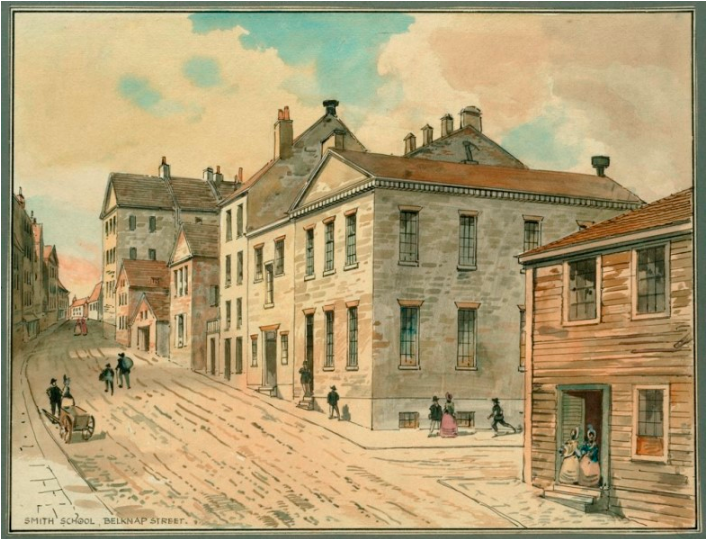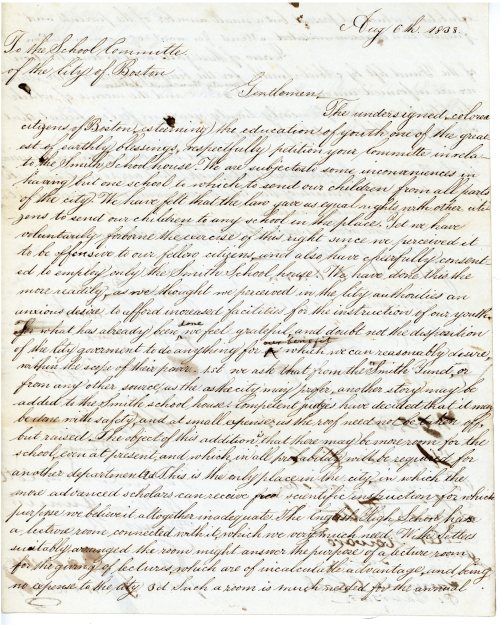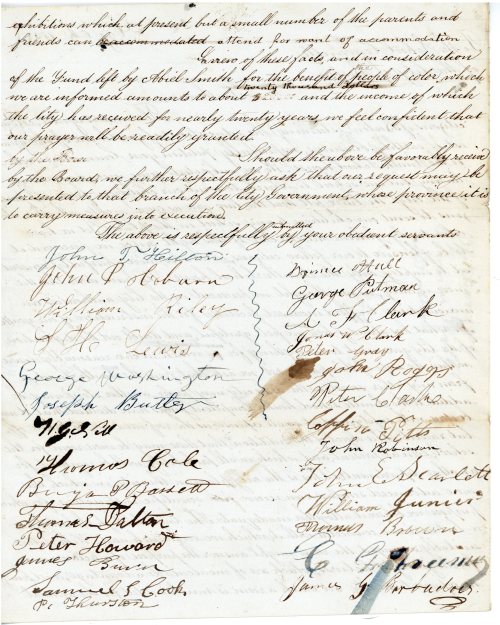Notes from the Archives: #onthisday in 1838, black Bostonians petition for an addition to Smith School
On this day in 1838, a group of black Bostonians petitioned the city for an addition to the Abiel Smith Schoolhouse.
In 1815, Boston businessman Abiel Smith died and left $4,000 for the education of African American children in Boston. At the time, the City’s African American population educated their children in the African School, which met in the African Meeting House in Beacon Hill.
Although black Bostonians paid City taxes, their children were not allowed to attend City schools. After decades of petitions by black Bostonians, Boston's School Committee agreed to recognize the African School. In 1812, they began to contribute funds to the school’s operation. Abiel Smith’s 1815 gift allowed black Bostonians to move their school out of the African Meeting House and into its own building on Beknap Street (now Joy Street).
Despite these advances, the funding for the African School was much less than the funding for the City schools attended by white children. The 1838 letter below is an example of Boston’s black parents continuing to fight for equitable education for their children.
The letter writers argued for money to build an addition to the crowded Smith Schoolhouse. They noted that they had agreed to send their children to a segregated school, even though they “felt that the law gave us equal rights with other citizens to send our children to any school.” Though they had accepted segregated schools, they were not satisfied with the conditions at the school.
The letter writers also pointed out that the City had received an income from the Smith Fund for almost two decades. Since Abiel Smith gave the money to the City “for the benefit of people of color,” the writers argued that the City should pay for the addition without argument.
About a decade after this letter, in 1849, many black parents in Boston protested Boston’s segregated schools by withdrawing their children from the Smith School. Six years after their protest, in 1855, Massachusetts outlawed school segregation. Though government-enforced school segregation became illegal in 1855, black families continued to fight against de facto segregation
The Abiel Smith School is a National Historic Site. You can read more about the school and its history at the National Park Service’s website.




